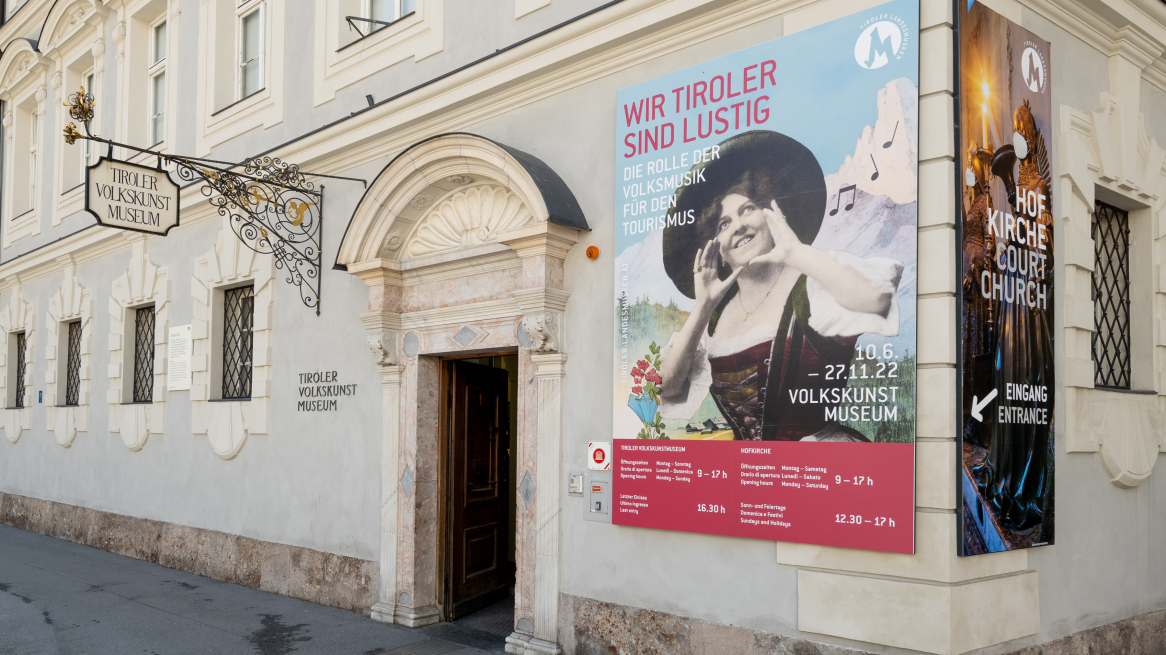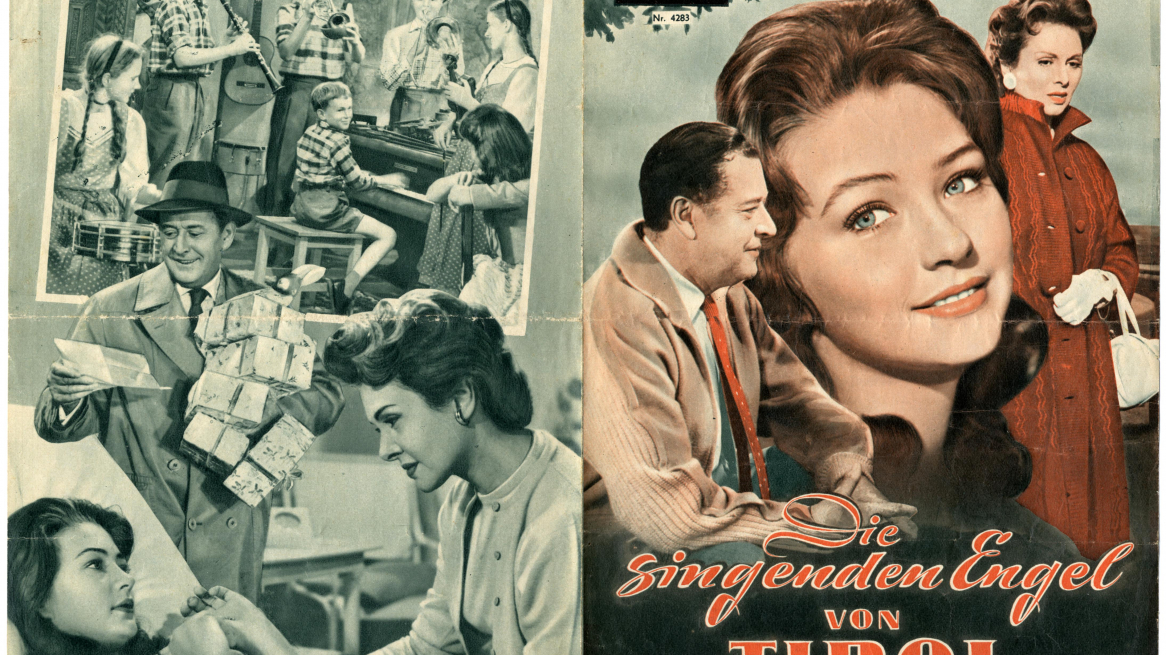The second room traces the history of the "Tiroler Abend." This is how costumed performances where people sing, dance and play both with musical instruments typical of the Alpine area and with mountain objects, such as a saw or cow bells, have been called since the `30s. Tyrolean folk groups have toured the world with shows that have taken them to America, Canada and the Far East, as is documented in the exhibition. Even today these shows are still staged in Innsbruck, in a fairground pavilion adapted as a theater
The exhibition then takes us into the post-World War II period. Here the role of cinema as a vehicle for disseminating Tyrolean music is investigated. We see movie posters and clips from films, comedies where mountains and music tell of an amused and entertaining Alpine world, far removed from the reality of harsh peasant life. And again there is talk of the Olympics, where Austria customarily presents Tyrol as a tourist resort, including through its music.









